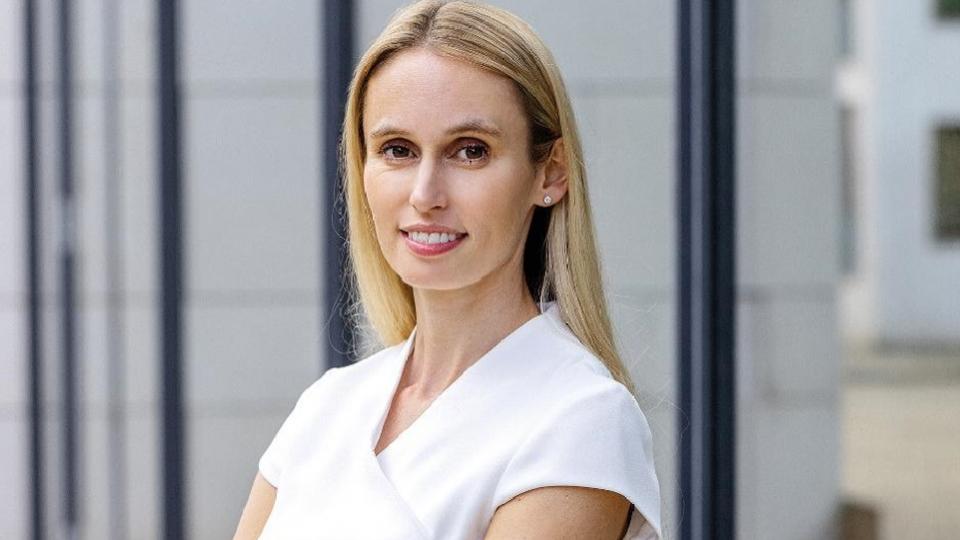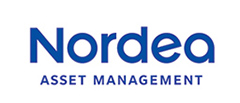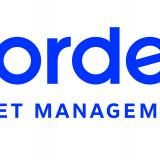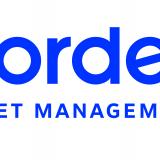
By Alexandra Christiansen, portfolio manager of Nordea’s Global Climate Engagement strategy
With climate awareness intensifying in recent years, we have witnessed a significant investor exodus from heavy-emitting companies. The rise of ESG has been a key factor in this flight of capital, as asset managers have sought to demonstrate strong sustainability credentials.
As we embark on the evolution to a greener world, there are still numerous companies perceived as lagging in the transition, especially today’s heavy emitters, many of whom are responsible for a large part of the global pollution problem.
However, like it or not, many of these heavy emitters will play a crucial role in our transition to a more sustainable future, so it is important for investors to engage with these less popular companies. While there will always be companies to avoid – namely those requiring a complete business model reinvention – there are many businesses still relevant in the low carbon future but need to better demonstrate their transition in the right direction.
In an effort to enact real-world change, we have undertaken numerous engagement efforts with today’s heavy emitters since the launch of our Climate Engagement strategy in April last year. Below, we highlight three examples of our interactions*.
Ashland
Ashland has evolved from being a diversified chemical player to a consumer-focused specialty additive and ingredients company, which is well aligned with sustainable trends. While it has historically lagged its competitors in terms of returns, the market has not yet rewarded the group’s efforts to transition to sustainable chemistries.
The aim of our engagement has been to support Ashland in convincing the market about the evolution of its portfolio over the past few years, as well as to push for a clearer strategic direction as it accelerates its journey towards a more sustainable product offering. We believe this will lead to improved fundamentals and a higher justified valuation for Ashland, while its changing product offering will also deliver associated environmental benefits.
We have held five meetings with Ashland since the launch of our Climate Engagement strategy last year, including with the CEO and CFO. We have encouraged the company to ensure sustainability is a central aspect of its strategy, in terms of knowledge, transparency, and targets. We were encouraged to see it achieved FSC certification for cellulose-based materials and look forward to continuing to work together to unlock further value and environmental benefits.
Hawaiian Electric Industries
Hawaiian Electric Industries (HEI) is the largest supplier of electricity in the US Pacific Ocean state. The company and its subsidiaries serve 95% of Hawaii’s 1.4 million residents on the islands of Oahu, Maui, Hawaii Island, Lanai and Molokai. In 2017, the state of Hawaii approved a roadmap to achieving 100% of electricity from renewable sources by 2040.
Our initial engagement was focused on the acceleration of solar deployment, which also made economic sense due to favorable conditions for solar energy in the region. Later, we also pushed for board refreshment to include members with sustainability and utility backgrounds, who we view as better qualified to drive the energy mix transition. We also worked with HEI on its reporting to the Task Force on Climate Related Financial Disclosures (TCFD).
More recently, we have encouraged the company to publish emissions reduction targets in terms of carbon intensity to account for economic growth, and to seek approval from the Science-Based Target Initiative (SBTi). HEI has now formally committed to seeking SBTi approved short-term and net-zero targets. Also, HEI’s net-zero target is now credited by the Transition Pathway Initiative, which we believe will help promote the company’s positive decarbonisation strategy.
Xcel Energy
With approximately 45 million tons of direct carbon emissions, US regulated utility group Xcel Energy is a major US electricity supplier and among the world’s 30 largest greenhouse gas (GHG) emitters. As it currently owns and operates coal-fired power plants, Xcel is often automatically overlooked – or outright excluded – by ESG-conscious investors, despite becoming the first major US utility to set net-zero emissions targets already in 2018.
While still part of the climate problem, we have already witnessed rapid decarbonisation from Xcel. Its coal-fired electricity production has dropped from almost 56% of its total generation in 2005 to 25% in 2021 – while the share from renewables increased from about 9% to 36% over the same period. We have been engaging with Xcel on climate topics individually, and through the Climate Action 100+ initiative, since 2019. Over the course of this engagement, Xcel have significantly strengthened its climate-related reporting and linked executive compensation to emission reduction targets. Moreover, it has recently sought regulatory approvals for coal plant retirements, which will mean it completes a full retirement of all remaining coal plants by 2030, or sooner.
In light of Xcel’s ambition to achieve net-zero methane emissions by 2030, we recently focused our engagement on this powerful GHG – which contributes to about 25% of global warming – urging Xcel’s CEO and management team to join the Oil and Gas Methane Partnership 2.0 (OGMP 2.0) without delay. To date, more than 100 companies have committed to measuring and reporting methane emissions through this transparent, science-based, and globally standardised protocol.
* Reference to companies or other investments mentioned should not be construed as a recommendation to the investor to buy or sell the same but is included for the purpose of illustration.
About Nordea Asset Management
Nordea Asset Management (NAM, AuM 239bn EUR*), is part of the Nordea Group, the largest financial services group in the Nordic region (AuM 359bn EUR*). NAM offers European and global investors exposure to a broad set of investment funds. We serve a wide range of clients and distributors which include banks, asset managers, independent financial advisors and insurance companies.
Nordea Asset Management has a presence in Bonn, Brussels, Copenhagen, Frankfurt, Helsinki, Lisbon, London, Luxembourg, Madrid, Milan, New York, Oslo, Paris, Santiago de Chile, Singapore, Stockholm, Vienna and Zurich. Nordea's local presence goes hand in hand with the objective of being accessible and offering the best service to clients.
Nordea’s success is based on a sustainable and unique multi-boutique approach that combines the expertise of specialised internal boutiques with exclusive external competences allowing us to deliver alpha in a stable way for the benefit of our clients. NAM solutions cover all asset classes from fixed income and equity to multi asset solutions, and manage local and European as well as US, global and emerging market products.
*Source: Nordea Investment Funds, S.A., 31.12.2022
Nordea Asset Management is the functional name of the asset management business conducted by the legal entities Nordea Investment Funds S.A. and Nordea Investment Management AB (“the Legal Entities”) and their branches and subsidiaries. This document is advertising material and is intended to provide the reader with information on Nordea’s specific capabilities. This document (or any views or opinions expressed in this document) does not amount to an investment advice nor does it constitute a recommendation to invest in any financial product, investment structure or instrument, to enter into or unwind any transaction or to participate in any particular trading strategy. This document is not an offer to buy or sell, or a solicitation of an offer to buy or sell any security or instruments or to participate to any such trading strategy. Any such offering may be made only by an Offering Memorandum, or any similar contractual arrangement. Consequently, the information contained herein will be superseded in its entirety by such Offering Memorandum or contractual arrangement in its final form. Any investment decision should therefore only be based on the final legal documentation, without limitation and if applicable, Offering Memorandum, contractual arrangement, any relevant prospectus and the latest Key Information Document (KID) or the Key Investor Information Document (KIID) for UK investors where applicable, relating to the investment. The appropriateness of an investment or strategy will depend on an investor’s full circumstances and objectives. Nordea Investment Management AB recommends that investors independently evaluate particular investments and strategies as well as encourages investors to seek the advice of independent financial advisors when deemed relevant by the investor. Any products, securities, instruments or strategies discussed in this document may not be suitable for all investors. This document contains information which has been taken from a number of sources. While the information herein is considered to be correct, no representation or warranty can be given on the ultimate accuracy or completeness of such information and investors may use further sources to form a well-informed investment decision. Prospective investors or counterparties should discuss with their professional tax, legal, accounting and other adviser(s) with regards to the potential effect of any investment that they may enter into, including the possible risks and benefits of such investment. Prospective investors or counterparties should also fully understand the potential investment and ascertain that they have made an independent assessment of the appropriateness of such potential investment, based solely on their own intentions and ambitions. Investments in derivative and foreign exchange transactions may be subject to significant fluctuations which may affect the value of an investment. Investments in Emerging Markets involve a higher element of risk. The value of your investment can go up and down, and you could lose some or all of your invested money. Investments in equity and debt instruments issued by banks could bear the risk of being subject to the bail-in mechanism (meaning that equity and debt instruments could be written down in order to ensure that most unsecured creditors of an institution bear appropriate losses) as foreseen in EU Directive 2014/59/EU. Nordea Asset Management has decided to bear the cost for research, i.e. such cost is covered by existing fee arrangements (Management-/Administration-Fee). Published and created by the Legal Entities adherent to Nordea Asset Management. The Legal Entities are licensed and supervised by the Financial Supervisory Authority in Sweden and Luxembourg respectively. A summary of investor rights is available in English through the following link: https://www.nordea.lu/documents/summary-of-investors-rights/SOIR_eng_INT.pdf/. The Legal Entities’ branches and subsidiaries are licensed as well as regulated by their local financial supervisory authority in their respective country of domiciliation. Source (unless otherwise stated): Nordea Investment Funds S.A. Unless otherwise stated, all views expressed are those of the Legal Entities adherent to Nordea Asset Management and any of the Legal Entities’ branches and subsidiaries. This document may not be reproduced or circulated without prior permission. Reference to companies or other investments mentioned within this document should not be construed as a recommendation to the investor to buy or sell the same but is included for the purpose of illustration. The level of tax benefits and liabilities will depend on individual circumstances and may be subject to change in the future. © The Legal Entities adherent to Nordea Asset Management and any of the Legal Entities’ branches and/or subsidiaries.



